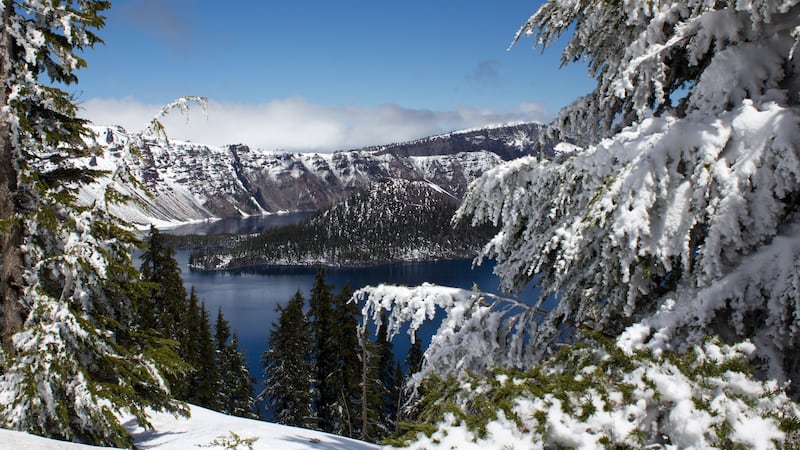Rangers at Crater Lake National Park know visitors used the park as a toilet during the recent federal government shutdown. But they won't learn the extent of the ecological damage until June—when snow melts to reveal human excrement.
"What could be cleaned up was cleaned up, but a lot of it was buried under the snow," says Marsha McCabe, public information officer for the park. "So we'll be dealing with that in June, when the snow melts."
Officials at Oregon's only national closed the main road to the lake rim on Jan. 3, during the second week of a government shutdown triggered by President Donald Trump's demand for a border wall.
The park closure attracted significant media interest, because a notice cited "conditions caused by the impact of human waste buildup on the park's water system." But no park officials were available to offer more detail—spokespeople had been sent home during the shutdown.
Related: Road to Crater Lake is closed amid national park poop crisis.
Crater Lake National Park reopened Monday. McCabe, who spoke with WW this afternoon, says the road closure was what it sounded like: Visitors to the park found the restrooms closed, and took a squat in the wild.
"People just were really going to the bathroom wherever," she says. "No 'Leave no trace' principles were being followed. … And litter was being dumped out wherever people could dump it out. It's a health concern to just have people going to the bathroom anywhere."
That account matches horror stories from national parks across the country, where tourists unprepared for shuttered facilities wreaked havoc on the environment and did wanton damage. Today, the Los Angeles Times reported rangers returning to Death Valley National Park in California were greeted by piles of feces and "toilet paper flowers." At Joshua Tree National Park, vandals cut down dozens of the namesake trees.
In Oregon, staff found a less alarming scene. Crater Lake National Park kept a skeleton staff on duty during the shutdown, enough to deal with water leaks and other immediate crises.
"Overall, things were in decent shape," says McCabe.
She reports that in the two days the park has again been open, the crowds have been minimal.
"It's been what we normally expect in January," she says. "It's our least busy month of the year."
